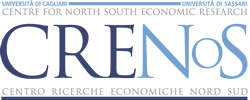Dissecting inequality: conceptual problems, trends and drivers
| Title | Dissecting inequality: conceptual problems, trends and drivers |
| Publication Type | Working Paper |
| Year of Publication | 2023 |
| Authors | Tidu, A |
| Number | 23_13 |
| ISBN Number | 978 88 68514 891 |
| Keywords | income, Inequality, Poverty, wealth |
| Abstract | Every social scientist knows that understanding inequality is pivotal for understanding the dynamics that rule human society. Inequality is at least as old as society, and some authors even argue that economics itself originate from the inequalities in skills and needs that inevitably lead to specialization, trade and surpluses. Despite its relevance, it is nevertheless very hard to define inequality and – somehow paradoxically - it might get even harder when one tries to restrict the focus to subcomponents such as income or wealth inequality. And even when the income or the wealth part of the equation is agreed upon, inequality still remains conceptually problematic: what shall be perceived as equal? Do a few really well-off (or extremely poor) outliers make a distribution more inequal than a larger number of people quite above (and quite below) the mean? Conceptual problems aside, a large amount of literature focuses on inequality trends and drivers and falsifies commonly-held beliefs such as the widespread myth that inequality is trending upwards. Some potential drivers are highly controversial: notably globalization is seen by some authors as stimulating a race to the bottom that ends up exacerbating existing inequality, whereas others argue that it is beneficial for the more disadvantaged. The goal of this review is to show how the conceptual vagueness behind the word inequality calls for as much rigor as possible in the study of its possible forms and notions and in the identification of the best tools for its measurement. However, one should not be fooled by associating such a vagueness with a lack of relevance of the concept and of its implications: au contraire, we should feel compelled to investigate the multitude of possible facets that the concept might assume and the fittest options and instruments that statistics and mathematics provide for their measurement: desirable policies could be radically different from each other depending on the theory that one espouses, and they range from the pursuit of resource redistribution to a mere acceptance of inequality as either inevitable or desirable. Also, different metrics could suggest different approaches, so one should carefully select the measures that will help him understand and describe the type of inequality that he is investigating. |
| Citation Key | 7396 |
| Attachment | Size |
|---|---|
| 2.84 MB |
